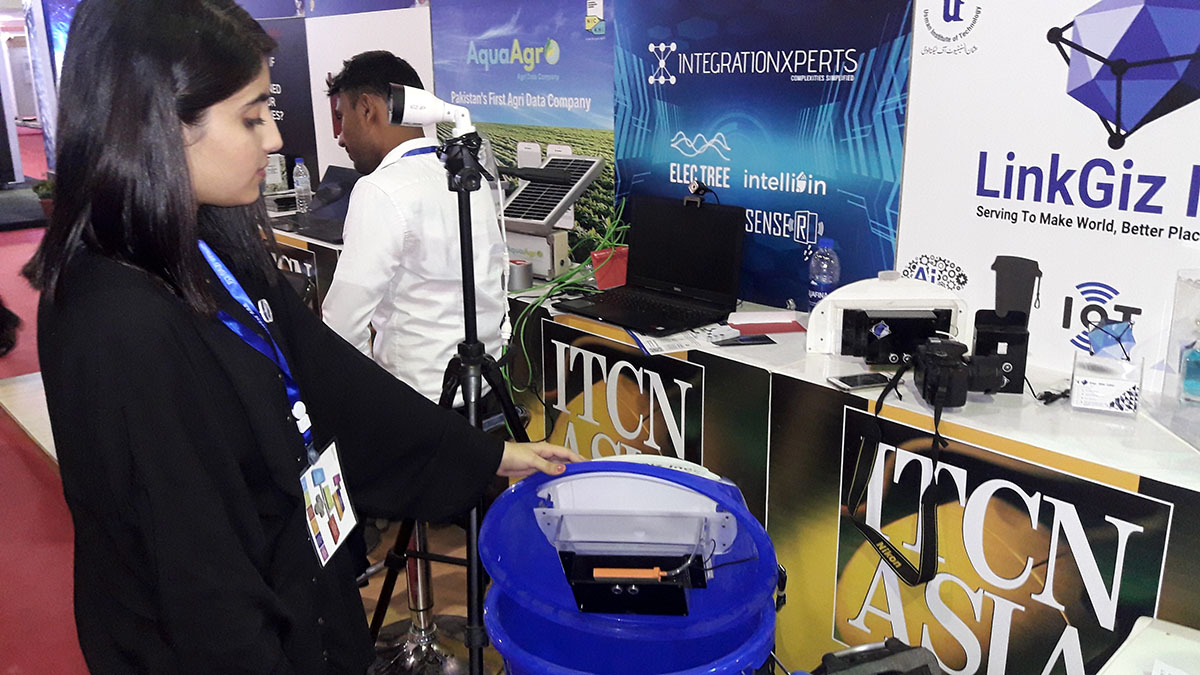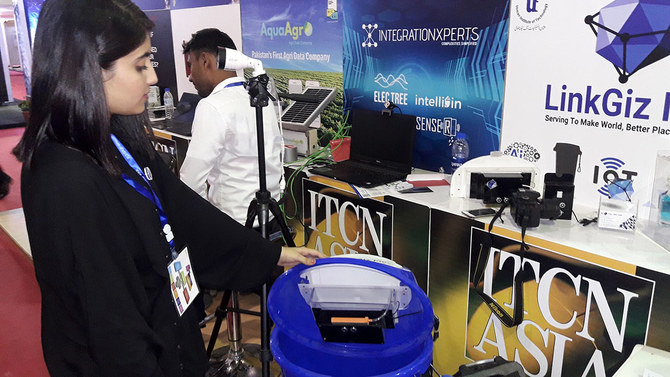KARACHI: A technology start-up in Pakistan’s southern metropolis of Karachi, a city that is among some of the world’s most polluted places, now sells a device that could modernize the management of waste disposal in the country, and it’s called a smart bin.
The company, LinkGiz, started work on the project in 2016, with manufacturing kicking off earlier this year using Internet of Things (IoT) technology, a system of interrelated computing devices that transfer data over a network without requiring human-to-human or human-to-computer interaction. The technology that comes with smart bins is already being used around the world, but has never before come to Pakistan. Though still in its early days, the company says it has sold about 60 bins.
“The smart bins are equipped with sensitive sensors and linked with a central database that allows timely dispose of the garbage,” Syed Shahrooz Shamim, founder and CEO of LinkGiz, told Arab News.
“You will know the exact quantity of the garbage, the nature (organic or inorganic) of what’s inside the bin, and... the last time waste was disposed of. It not only gives data of the garbage, but it also kills harmful germs with the use of germicides,” Shamim said.
The IoT enabled devices that cost up to Rs. 5000 ($32) and can be fitted onto bins and waste containers of any size, have arrived on the waste disposal scene in Karachi when Pakistan’s central and provincial government of Sindh are engaged in heated discourse that is being dubbed “garbage politics,” amid growing piles of waste and rising disease, in the country’s largest city of 15 million people.

The smart bin, a complete software and hardware system, displayed at Karachi’s Expo Center on September 17, 2019. (AN photo)
Though no official figures are available, it is estimated that Karachi produces 14,000 tonnes of garbage every day, with not all of it properly moved to landfill sites and the city’s leftover waste ending up in the sea.
“Around 8,000 to 10,000 tonnes of garbage is lifted from the city to designated sites while leftover garbage is thrown in the streets or in the drainage. Around 3,000 to 4,000 tonnes of garbage ends up in the Arabian sea every day,” Mehmood Moulvi, an advisor to Pakistan’s maritime affairs ministry, told Arab News.
“These (figures) are nearest to the actual. No one has the accurate figures,” he said.
The smart bin is a combination of software and hardware capable of communicating with a cloud-based interface, that users can access through an app. Though not yet marketed in a mass way, it could keep municipal workers and managers informed about the volume of waste, the presence of any toxic gas from the waste, as well as give recommendations about the size of the bin customized to the amount of waste produced at a particular location, according to the device’s creators.
“It prevents the spread of viruses up to 40 percent and keeps the performance of sanitary workers in check,” Shamim said.
Presently, smart bins are being used in the National Incubation Center of NED University and Usman Institute of Technology in Karachi, where the system was first developed for Pakistan.

















